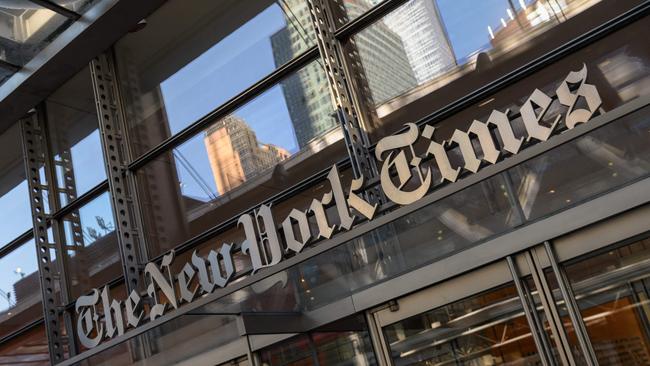Creatives urge laws to reduce AI ‘threat’ as New York Times sues OpenAI
Australian creative industry organisations say the nation should ‘maintain a strong copyright framework’ as the proliferation of generative artificial intelligence threatens their business models.

Australian creative industry organisations say the nation should “maintain a strong copyright framework” as the proliferation of generative artificial intelligence threatens their business models.
The New York Times yesterday became the first major news company to file a lawsuit against a generative AI manufacturer, alleging intellectual property infringement.
In a complaint lodged to the US Federal District Court in Manhattan, the New York Times alleged ChatGPT maker OpenAI – and key partner Microsoft – built large language models by “copying and using millions” of Times articles.
Other media organisations like image giant Getty and a group of US writers have previously brought copyright claims against AI manufacturers.
University of Sydney intellectual property law expert Kimberlee Weatherall said US copyright law was more permissive compared to Australia’s regime.
“In order to train the models effectively, these companies may have made copies, reproductions of copyright work – all of that text and pictures on the internet,” she said.
“If those copies had been made in Australia, or trained in Australia, I think it’s much more likely that there would have been infringement and that would be relatively more straightforward to show in an Australian court. The difficulty, of course, is we’ve only seen those cases in America because the training hasn’t happened here.”
Amid a review of Australia’s copyright laws, AI manufacturers like Google and Microsoft have asked for changes in the interest of innovation.
“We are already seeing the impact of a lack of allowances under Australian copyright legislation for AI research and open source innovation more broadly,” Google said in its submission to the industry department’s consultation on AI regulation.
The Australian government this month announced it would create a copyright and AI reference group to tackle “future copyright challenges” emerging from the technology. The group will include stakeholders from the technology, creative, and media sectors, the Attorney-General’s department said.
An alliance of 22 Australian creative industry organisations, including music industry body ARIA, the Copyright Agency, and NewsCorp Australia – the publisher of The Australian – said Australia should maintain “a strong copyright framework” and ensure generative AI models “are only trained on legally obtained data sources that are: obtained and used with permission and agreed terms, which may include remuneration”.
Former Australian Competition and Consumer Commission chair Rod Sims warned generative AI could damage society by reducing incentives for art and other creative pursuits.
The New York Times complaint said the company reached out to OpenAI and Microsoft in April 2023 but the efforts “have not produced a resolution”.







To join the conversation, please log in. Don't have an account? Register
Join the conversation, you are commenting as Logout